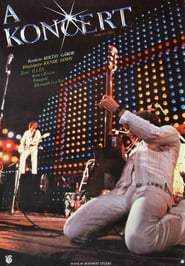detail profile tam c3 a1s andor
Peran Yang Di Mainkan Tamás Andor
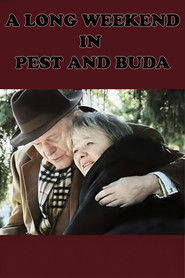 Ivn is living in exile from...
Ivn is living in exile from...A Long Weekend in Pest and Buda 2003
Iván is living in exile from Hungary when he receives word that an old flame is ill. His return to Budapest rekindles old memories and reopens old wounds.
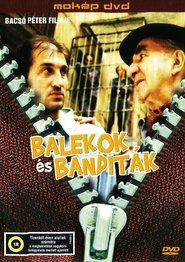 The film has a broken meaning...
The film has a broken meaning...Gulls and Gangsters 1997
The film has a broken meaning, the last time he was a proofreader for a book publisher, he is now unemployed. Ever since he was a child, he has always been the one who pulls the short one, and he takes the wrong one. At the beginning of the film, he finds himself in such a "bunbak" situation again, and then he decides to become a professional bunbak...
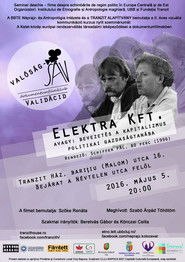 Six physical workers once working for...
Six physical workers once working for...Elektra Kft. avagy: bevezetés a kapitalizmus politikai gazdaságtanába 1996
Six physical workers, once working for Videoton, decide to come together and create a company on their own.
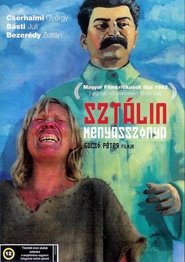 At a dusty crossroads in the...
At a dusty crossroads in the...Stalin's Bride 1991
At a dusty crossroads in the Soviet Union villagers surrender their possessions - a horse, a samovar, a goat - to the state. The train which takes them away brings to the village a physically and mentally handicapped woman, barely able to speak. She makes herself bracelets of burrs and studies herself in a cracked and cloudy mirror. Befriended by very few, teased and tormented by many she seeks protection at a huge portrait of Stalin.
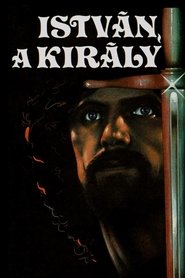 Istvn a kirly Stephen the King...
Istvn a kirly Stephen the King...Stephen, the King 1984
István, a király ("Stephen, the King") is a Hungarian rock opera written by Levente Szörényi (music) and János Bródy (lyrics), based on the life of Saint Stephen of Hungary. The storyline was based on the play Ezredforduló (Turn of the Millennium) by Miklós Boldizsár, who co-wrote the libretto. The opera was first staged in 1983 on an open-air stage in Budapest. This first performance was also made into a 1984 film, directed by Gábor Koltay, and its music released on an album. The musical became a smash hit and is still very popular in Hungary and among Hungarian minorities in neighboring countries.
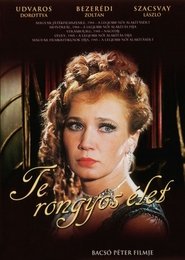 The Hungarian Oh Bloody Life reflects...
The Hungarian Oh Bloody Life reflects...Oh, Bloody Life 1984
The Hungarian Oh, Bloody Life reflects on the heavy emotional toll taken by the repressive Stalin regime. Dorotya Udvaros plays a young actress from a high-born family. The government bias against persons of wealth threatens to destroy her career before it begins. As a final blow, she is threatened with deportation. The exasperation inherent in the film's title is only the tip of the iceberg.
 Political and sexual repression in Hungary...
Political and sexual repression in Hungary...Another Way 1982
Political and sexual repression in Hungary, just after the revolution of 1956. Passionate and determined, Eva gets a job as a journalist. There, she meets Livia and is attracted to her. Livia feels much the same, but as a married woman, has doubts and hesitations. In their work, they (and Eva in particular) bang up against the limits of telling political truths; in private, they confront the limits of living out sexual and emotional truth.
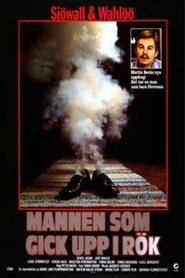 The journalist Alf Mattson gets thoroughly...
The journalist Alf Mattson gets thoroughly...The Man Who Went Up in Smoke 1980
The journalist Alf Mattson gets thoroughly drunk at his birthday party, where his wife announces that she intends to divorce him. He is knocked down on the street and is later carried home by a friend. The next day he is to fly to Budapest in order to make a report for the Stockholm television. Mattson disappears in Budapest.
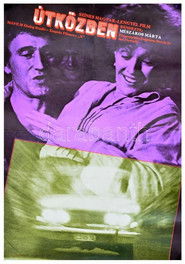 Barbara is a fortyyearold woman of...
Barbara is a fortyyearold woman of...On the Move 1979
Barbara is a forty-year-old woman of Polish origin living in Budapest. She is a biologist, a wife and a mother. The death of her woman friend opens her eyes to the fact that she is lonely, unable to find her place.
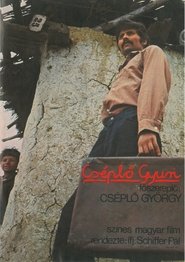 The documentaryfeature film taking place in...
The documentaryfeature film taking place in...Gyuri 1978
The documentary-feature film taking place in the seventies is the "development novel" of Cséplő György, the intelligent and ambitious Gypsy boy. Having finished only two terms at school, the eighteen-year-old boy leaves Németfalu with two of his companions to find employment in Budapest and to break out of his miserable existence in the village cottage with the help of his small savings.
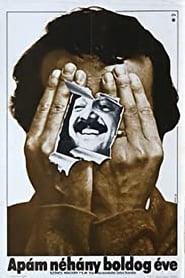 Director Sandor Simo based this film...
Director Sandor Simo based this film...My Father's Happy Years 1977
Director Sandor Simo based this film on his recollections of a period in his father's life just after World War II. In the film, Janos Torok is a chemist and an entrepreneur With enormous enthusiasm, he gets loans to purchase a small chemical plant and begins experiments to create innovative products, such as hormones. Meanwhile, the communist party has come to dominate Hungarian life in such a way that his activities are viewed as little more than criminal. He is hauled away to a prison camp, but even then his letters home are full of boundless optimism and his ideas for further experiments.
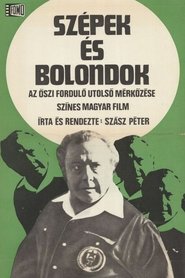 The corpulent and ageing Ivicz once...
The corpulent and ageing Ivicz once...On the Sideline 1976
The corpulent and ageing Ivicz, once an excellent baker, works as a deliverer now. He lives alone. At the weekends following the toilsome weekdays he is the boss. He regularly travels to the country, to work as the incorruptible referee of third class national soccer games.
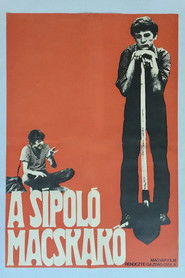 The weekdays of a youthcamp playing...
The weekdays of a youthcamp playing...The Whistling Cobblestone 1971
The week-days of a youth-camp, playing democracy, are depicted in this documentarist satire. Due to faulty organisation, the Budapest high-school students get only working tools, but no work to do. The camp leadership tries to cover up facts and urges them to be initiated into "community life".
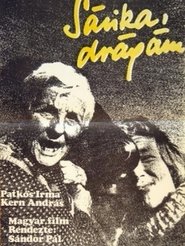 After his divorce Bna Pter a...
After his divorce Bna Pter a...Sarah, My Dear 1971
After his divorce, Bóna Péter, a beginner film director needs a bigger amount of money to settle his financial problems with his ex-wife. He travels to Pécs to see Sárika, an old veteran. He has not seen his aunt for a long time, and she receives him very friendly, but she flatly refuses to lend him any money.
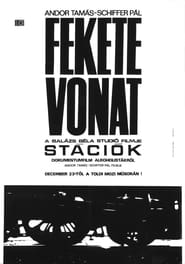 This shocking black and white documentary...
This shocking black and white documentary...Black Train 1970
This shocking black and white documentary shows the lives of Szabolcs county (Northeast Hungary) commuters who traveled 200-300 kilometers from their villages to Budapest (the capital of Hungary) every week by train in the communist era.
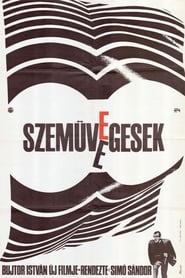 The young Valk wants to plan...
The young Valk wants to plan...Bespectacled 1969
The young Valkó wants to plan a block of apartments that will still be modern fifty years from now. His ambitious plans are continuously rejected by his manipulative and careless superiors. So instead of the modern block of flats he only plans a bachelor apartment.
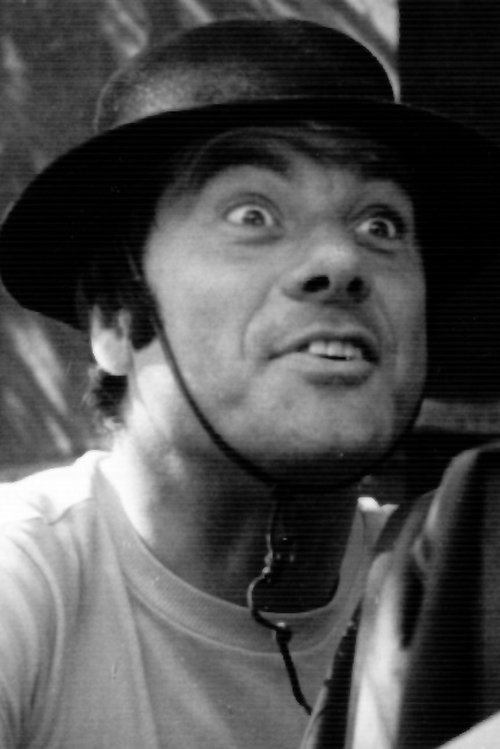
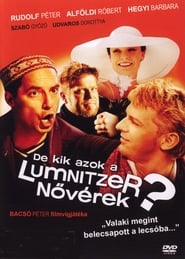 Story about two restaurant critics whom...
Story about two restaurant critics whom...